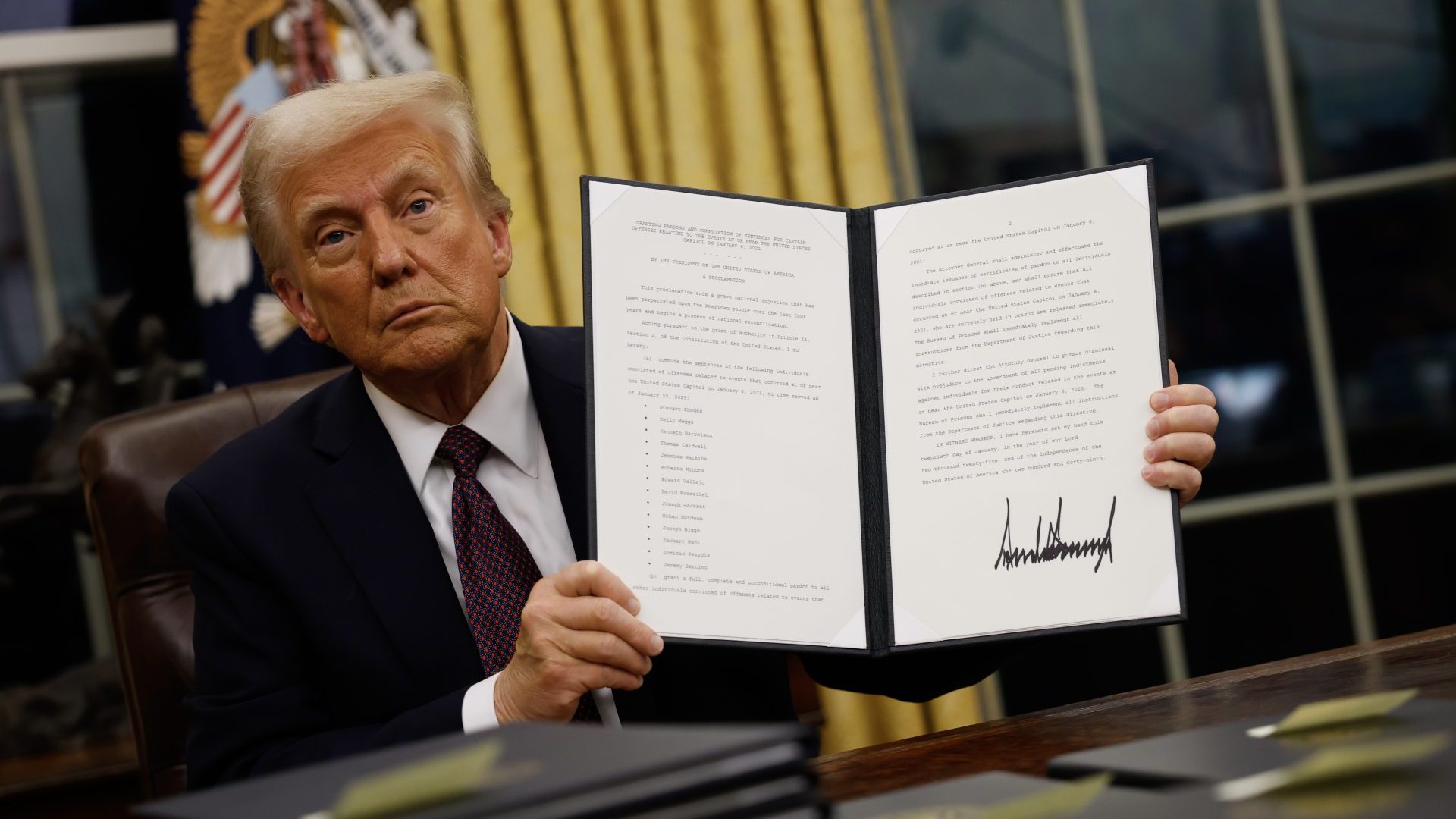The pace of Donald Trump’s first week in office has been so relentless – and so scattergun – that even the best-resourced newsrooms in the world are scrambling to cover it, and to stay current with which moves have real significance and which are likely PR froth.
There is the need to cover Trump’s cabinet nominees, some of them extraordinarily controversial, his torrent of executive orders, and his proclamation of trade wars with various nations.
But something unusual is creeping into the tenor of some analysis by mainstream or establishment figures of Trump’s first days – and it’s something like admiration. This is perhaps most obvious in an article published in the Telegraph over the weekend, written by Simon Case – who was the UK’s cabinet secretary under Boris Johnson, Liz Truss, Rishi Sunak and the first few months of Keir Starmer’s government.
Case argues that Trump’s approach towards “reinventing government” could be “the global blueprint” should he succeed. At various points in the piece, Trump’s efforts are described as a “vital experiment”, “impressive political theatre” with “extreme transparency” (because he signed executive orders in a stadium), and even as “fearless solutions”.
“Even those who might find the specific policies and aims of Trump abhorrent may yet find themselves drawn to Trump’s methods,” Case concludes – a sentiment echoed by several Conservatives and other UK political figures in interviews and on social media in recent days.
The media has a tendency to confuse activity with delivery, which is often exploited by politicians to their own advantage: announcing a new law on some specific offence will get blanket coverage in a way that simply trying to get police to enforce existing laws does not. The same spending can be announced many times over and only a few particularly nerdy hacks (or the ones that actually listen to the Institute for Fiscal Studies) will notice.
Trump is mostly engaged in an extreme version of this kind of political theatre – and so it’s alarming to see a figure as central to the operation of government as Simon Case apparently swayed by it.
Casual viewers of US politics tend to find executive orders impressive. They seem very official, they are often written in grand and sweeping terms, and they can certainly impact people’s lives – they direct the federal government’s activities, after all.
But executive orders are less than they appear to be: they are the equivalent of statutory instruments in the UK – they cannot override any law passed by Congress, let alone anything in the Constitution. They can be reversed immediately by any future presidency, as Trump’s rapid reversal of several Biden orders set out. There are serious limitations on what they can do.
That Trump, like other US presidents, is having to attempt major action through executive order is a symbol of the weakness and paralysis of the US governing system at the moment, not its strength. Congress repeatedly fails to even pass a budget for the government, let alone any major legislation. In the absence of actual action, presidents try for the appearance of it via executive orders.
Inevitably, Trump has taken it further by signing multiple executive orders that are almost certainly unlawful. At the most extreme end is an executive order on birthright citizenship that directly contradicts the 14th amendment of the US Constitution. It took a federal judge just 25 minutes in a hearing to issue an injunction staying the order. Once again, that’s a flurry of activity – resulting in very little actual delivery.
Elsewhere, most of what Trump is proving is that vandalism is much easier than actual governance. Trump has issued a “stop work” order that has halted PEPFAR, the longstanding US programme for HIV and AIDS which supplies medication to more than 20 million people in Africa. That same order has also stymied efforts to supply aid to refugees from Sudan, and to support other development efforts across the world.
Similarly, Trump has now paused all disbursements on several domestic federal aid projects, paralysing the usual work of government in providing for its own citizens. Federally funded cancer research and other public health work is stalled for up to 90 days. All of this is of questionable legality – in the US the executive is obliged to spend money appropriated by Congress – but that is of little matter: it’s happening.
It’s a strange thing for any mainstream politician to admire, though: it’s not delivering an agenda, it’s just sabotaging existing work. “Getting stuff done” is not context-neutral – it’s not possible to ignore the actual content of what’s being done when suggesting it’s an approach others should follow.
Trump is just demonstrating that the second law of thermodynamics still holds: it’s far easier to smash an egg than to put one back together. Trump is moving fast because he’s breaking things. Few ‘normal’ governments would want to engage in such needless vandalism whether or not it eventually furthered their policy aims.
The Case article feels like a manifestation of the mounting frustration of many in central government that the job is just increasingly difficult – there are so many challenges and so many vested interests acting against any change you would make.
Seeing someone who can apparently cut through all of that seems so cathartic that it even tempts those who know how the system works – almost as if it lets them live out a fantasy of imagining how much they could get done if only they could ignore all of those endless, frustrating, checks and balances.
All of that is fine, and entirely understandable, as an idle daydream. Politicians and officials should try, at a minimum, to keep it at that – rather than turn it into admiring columns. It’s quite literally the least they could do.












